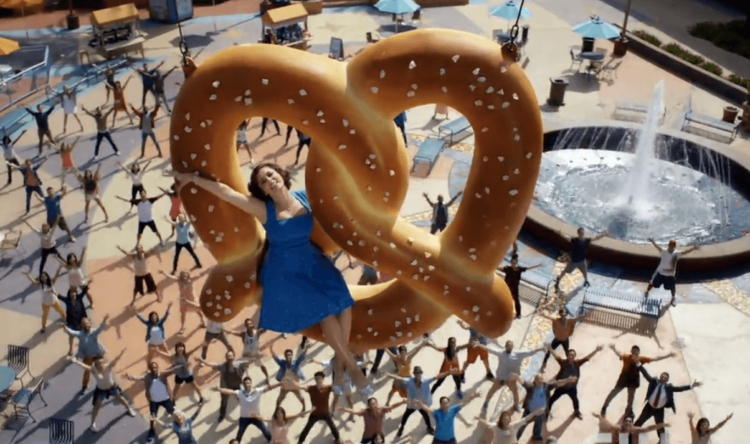
As most of you know, I don’t watch TV. But I do see billboards for TV shows, and there’s one show I was sure would bring down the fall of Western civilization, or something close to it. That show is called “Crazy Ex-Girlfriend” and from the billboards I saw, it showed a quirky busty female who I was sure would reinforce the notions that women are crazy and emotional and irrational, and guys need to keep them in line or else they might run amok and screw everything up.
It wasn’t until GrokNation Editorial Director Esther Kustanowitz brought my attention to the show that I had any desire to know anything more about it.
Turns out the show, which is on the CW, was created by the star, Rachel Bloom. Rachel is a prominent outspoken Jewish comedienne who got her start by writing sketch comedy and, in particular, musical sketch comedy. As in: she was inspired by one of my favorite musicians, Weird Al Yankovic. Rachel’s YouTube videos focus largely on her legitimate quirkiness and irreverent nature which we typically don’t see (or tend to tolerate as a culture) in females. Her song and video, “F*** me, Ray Bradbury,” which received a lot of attention, for example, talks about how her ideal man would be someone like the brilliant science fiction writer she is obsessed with.
On “Crazy Ex-Girlfriend,” Rachel portrays a woman who admittedly forces a change of life for herself by moving across the country to pursue an old flame who has no apparent interest in her. Here are the opening titles…
Rachel’s character struggles with legitimate mental illness and the character she portrays is a very interesting and nuanced female. Rachel is very outspoken about her and co-writer/co-creator Aline Brosh McKenna’s concerted efforts to show a woman living on the verge and trying to make it all come together. The musical numbers tend to highlight the absurdity of being female with numbers like “The Sexy Getting Ready Song” and take on racy themes, to which she brings a sense of humor and wisdom (“Heavy Boobs,” for instance, is clever, disturbing, and amazing at the same time).
So I did something I’ve never done before for you all: I emailed her publicist and asked if I could speak to Rachel for GrokNation. She graciously accepted, and here’s the transcript of our conversation, which happened last Friday.
I hope you enjoy reading about Rachel’s process as a comedienne, her thoughts on diversity on her show, and her opinions about what “crazy” really means.
MB: I know you’re really busy but I want to thank you so much for talking.
RB: I’m so excited to talk!
MB: I’m gonna be really up front: I don’t actively watch television so I kind of get my pop culture information other ways – like through watching your videos on a computer – but I’ve become a very big fan of yours and the reason I wanted to speak to you is because I’m really interested in not only what you do on your show in particular, but how you talk about it, and that’s kind of what I wanted to pick your brain about a little bit if that’s cool.
RB: That’s so cool and I’m really honored to be your first interview. I’m a really big fan!
MB: Well thank you! I was interested in some of the deeper issues you seem to hit on with your show and your videos as well. The first thing I want to tackle is the prominence of the discussion of mental health and obviously the title of your show. You know, the first thing I thought when I saw the billboards was “Oh G-d; we don’t need another show making people think women are crazy.” But I’ve learned a lot about your approach and from what I’ve seen I think its really, really interesting how simultaneously critical you are of that language and also how up-front you are about some of the issues behind that word. So can you talk about your decision to go about dealing with that notion?
RB: Sure, sure. So for a long time I was doing music videos online. When I started out I wanted to be my own one person sketch group. I started out by writing sketch, and what I realized from writing sketch music was that music taps into like my emotions and insecurities in a way that I couldn’t when I was just writing sketch comedy because writing sketch comedy accessed this more kind of heady, almost mathematical side of you. When you learn to write sketch technically, it’s almost like solving a little puzzle. And so I wanted to write pop music and take like tropes from pop music and then deconstruct them for normal people. So for instance, the first one I did, about Ray Bradbury – I wanted it to be a sexy pop song and explore what I actually found attractive and the qualities I admire.
If you don’t know anything about the show you’d just take the title as like, “oh, it’s such a dumb title.” It’s been interesting to see it from that perspective, because in the beginning it was always so much from Rebecca’s perspective, that we never even considered the other option.
MB: Well I think kind of the concern is a lot of times when women are emotional or expressive or have feelings that are uncomfortable for men, the word “crazy” gets thrown around, so that was interesting to me— the use of the word, and the notion of turning the word on its head, as well.
RB: Yes; that’s one of the things we were really interested in exploring especially in season 2 is, you know, the idea of “gaslighting” [manipulating someone by psychological means into questioning their own sanity] – when you say, “Oh I have a crazy ex,” chances are it’s not like they’re acting in a vacuum. Chances are, you did something to make them react in this way. So it’s a two-way street that people who use that label don’t often acknowledge because they don’t want to take responsibility for their actions.
Also, I think the crazy label comes from being crazy, and not having control over my mind; that is my biggest fear. I dealt in my life with, at times, pretty bad anxiety and depression, and mental illness runs very strongly in my family. And just that idea of not being in control and not being lucid – that’s so scary to me and I feared that a lot because I was a very emotional person, especially in love. I allowed love to make me crazy and then when that happened I’d be like, “Oh my G-d, I’m going crazy”! and I would put it on myself and blame myself rather than admit that I dated a kind of horrible person, and I let it affect me this way. So I like dealing with characters who are grappling with their mental illness, because it’s my way of facing my biggest fear.
MB: Right, that’s really fascinating.
I wanted to talk about what you mentioned in terms of your musical references. I’m a very big Weird Al fan and obviously a lot of what you do reminded me of him in terms of the intellect and the comedic being combined that way, but it’s something that I have been exploring on my website and that we’ve started writing videos about. Namely: what it’s like to be a female with those kind of nerd sensibilities because we can’t say the same things that men can, and we do present ourselves differently as females. And you’re an attractive person, so obviously the gaze of people is different when they’re looking at you vs. a Weird Al, so I wanted to ask you what your experience was – I’m a decade older than you so I think it’s become more friendly to have females like us nowadays – but I wanted to know what your experience was growing up as someone who was in love with Ray Bradbury and Weird Al.
RB: My musical influences are very much Weird Al, Mel Brooks, the South Park guys – it’s very much that style, but it’s also very male. I fell in love with sketch comedy in college, and the sensibility of the sketch group was also very male. Something about it was like, if I want to write sketch comedy, it’s like I’m doing an impression of a guy. There was something very masculine about it when I learned it.
I come from a musical theater background and a lot of times in musical theater, the female characters are very feminine– they use their sexuality. The golden age of musical theater was the 1950s and 60s and when you have funny female songs, the women were funny and sexy. I think sex is really funny and think it’s really hilarious and I hadn’t seen a woman taking the idea of pop music and how it makes women out to be these sexpots in pop music that’s in some ways very exploitative. I hadn’t seen someone do that and own it for themselves, kind of like in a Mae-West-type of way. I think in some ways burlesque is a big influence for me: just the idea of taking sexuality and using it to be funny, and I think that what I do is significantly less sexy than burlesque!
MB: So want in particular do you feel is unique about the female aspect of it?
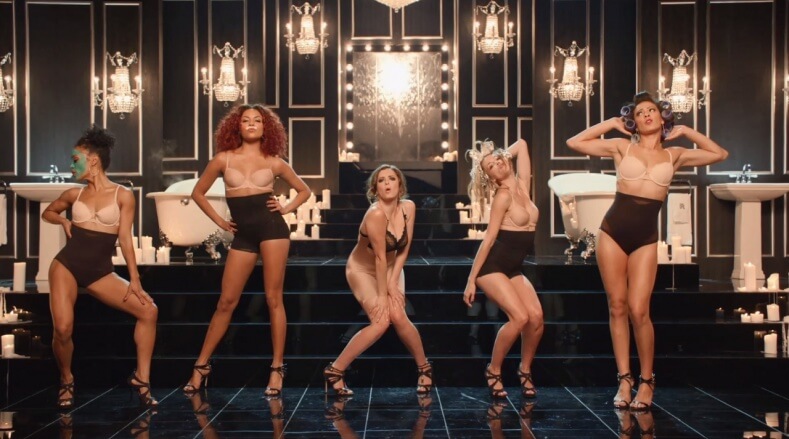
RB: I think what it is with a lot of pop music for me is expectations vs. reality, as with “Sexy Getting Ready Song.” Pop music has this idea of a woman getting ready for a date by powdering herself — you see these paintings from France from the 1800’s where it’s like a woman powdering herself… And in actuality, getting ready for a date or a party and grooming in general is a horrifying thing! And it’s this thing we have fetishized: women in lingerie, women in girdles and corsets… I wanted to cut the sexual legs out from under that and it was really fun to film “Sexy Getting Ready Song.” Pop music is so much about the male gaze on a woman’s body even when it’s made by women and even if it’s supposed to be empowering. It’s still this idea of you know, sexualizing the female body and female sexuality in ways that are sometimes empowering but sometimes not realistic.
And so with my song “Heavy Boobs” which we just did, this is a way of saying, “Look at my body, look at my curves!” But I wanted to take that idea of “Look at my body, look at my curves!” and explore the other side of it that no one talks about – that it’s a pain in the ass. I started getting boobs in middle school, and in college I went on birth control to regulate my period, and my body had a weird reaction to it because my boobs grew like two sizes. And basically half the month I was in pain, but my boobs looked great, but I was in really bad pain. And so for for years I kind of associated having big boobs with having really crippling chest pains that I just sucked up and dealt with. Exploring how things are portrayed versus how they actually are continues to be really interesting.
MB: I want to talk about the diversity on your show. I know you talk about this a lot but especially because we have such a diverse audience and I do talk about also the true movement of feminism and how it was to liberate all shapes, sizes, and colors; not just women. So your show is a great example of that – for example, having a male, Asian romantic lead. Was this a conscious choice of yours?
RB: Yeah. I learn so much about writing character from Aline. She’s unbelievable. When we were conceiving of the show we wanted a love interest that would be the opposite of my character and would be new and unexpected. So we were thinking “So-Cal bro” but that’s been done. And then it’s like, “What’s something else that’s interesting?” I grew up in southern California and I grew up with a lot of buff Asian bros and I had never seen that on TV. And knowing that West Covina is 50% Hispanic and 20% Asian – it’s very likely he’s a first-generation American. There’s this idea in first-generation families, especially in the suburbs, that there’s a real family unity and a real closeness that my character doesn’t have. It became apparent in the pilot when she goes and watches Josh hug his two loving parents and he has this big loving Filipino family. Rebecca has an East Coast single mother; she was an only child and didn’t have that. So diversity for us is always simultaneous but it’s always telling new and interesting stories.
The reason our show is the way it is, especially with the Filipino character, is because we have a Filipino writer on staff Rene Gube who plays “Father Brah” and also wrote the Thanksgiving episode and the season finale. And those specifics come directly from him. There’s internet research we could have done, but there are certain things you need other points of view for.
And as far as the character of Darryl being bisexual, we always liked the idea that when Rebecca comes to West Covina, it’s like a stone in a pond, she has a ripple effect on everyone. And the theme of season 1 was – for all the characters – the lies we tell ourself. And not only was Rebecca lying to herself, but everyone in this happy California suburb was ignoring a certain truth. And when we thought about Darryl, he’s a happy-go-lucky character, but there’s a real sadness underneath all these people. And I know people like that and there’s always a deep fucked-up sadness about [them]: what could Darryl not be acknowledging? Sexuality is a huge part of people’s identity and a huge reason for people being unhappy, so we were like huh, we knew he loved his wife and we didn’t want to negate that suddenly; she broke his heart, but we were like, “I just feel like he likes guys and doesn’t know that.” So making him bi was also like it’s just so fresh and new to us and that’s why I think this conversation about diversity is not only important for people, but also just for telling good stories because I think that audiences are more sophisticated now and America is a nation of immigrants, and our media should reflect that. Vincent Rodriguez III, the person who plays Josh’s character, said he never imagined someone like him would be on TV.
MB: I want to ask about your Jewishness and your openness and kind of making that part of the character. As someone who is very prominently Jewish and has been explicitly told my character is not, to which my then 8-year-old said, “She has to be Jewish, Mama; you play her.” I’m sort of curious about the general diversity and then in particular your relationship to presenting Jewish-ness.
RB: As far as the Jewishness, I grew up in LA. I was raised pretty secular, but even as a secular west coast Jew I knew I was Jewish. I lived in NY and my husband was raised extremely Conservative in NY and if you’re an east coast Jew, your Jewishness permeates every part of you. East coast Jews are just different. It’s such a big part of your identity and then you get into the specificity of character and who she is. This character is from Scarsdale, and she was raised by a mother who said “Succeed! Succeed!” which is an immigrant philosophy. Really, Jewish parents are not so different from Indian parents. It’s like “Succeed! Succeed! You need to survive.” And so I think it’s interesting that someone said your character is not Jewish. And I think there’s a fear especially with network television of alienating people because in network television, you have to appeal to everyone. And I guess because our show started as a cable show, I don’t really care about alienating people with specificity.
MB: I think that’s also a huge part of your strength and what’s so fascinating to me about you and so many women like you. You have a tremendous amount of control and confidence about your career that many other actresses don’t and certainly many other women don’t. So I think that’s what’s so fascinating and that’s so compelling: that you’re kind of this self-made, fantastic creature, but it’s really special how much control you’ve been able to have.
RB: I’ve been so lucky. I mean, I never would have pitched this show alone; what I learn from Aline, because I had been doing music videos on my own and I’ve been like, “This is my tone.” But getting your own television show is a different ball game. The great thing about working with Aline, because she is an established screenwriter who is also a badass, is I’d walk into rooms with her and she’d be like, “This is our show, it’s awesome and I’m not gonna apologize for it.” And there is something women do where they’re like, “I’m so sorry, I just have a show to pitch you if I can have just a second of your time.” And Aline is really the reason that we both have the freedom to make the show what it is because she’s like “This is our show, and if you don’t like it then it’s not for you.” And I really took that from her and ran with it so it’s been really wonderful that I have like an older co-creator/ mentor who’s given me the courage to do this.
And I think about how I have an edge: like if you’re acting in someone else’s show, you don’t have control over the character, and you don’t know what the creators want you to say, so I have that luxury. Writing gave me that freedom of thinking, “Oh I’m not afraid of upsetting anyone because I’m the boss.” And I think it’s also about body image; there’s no one telling me to lose weight because I would be that person telling me to lose weight! And there’s no one telling me to act or dress a certain way which you hear they do on certain shows and I never got media training from the CW which is a miracle which I guess shows their faith in me.
MB: Well I can’t tell you how much I appreciate your time. It’s been really interesting and I hope our paths will cross somehow. I do know how to sing if you ever need me on to sing anything with you on the show! It’s been really nice talking to you.
RB: So nice talking to you too. Does your website name come from “A Stranger in a Strange Land”?
MB: Yes it does! I will have this interview directly transcribed, would you like me to send you a copy of the post before I post it?
RB: I’ll stand by anything I said, so I’m fine. I trust you.
MB: I hope so – take care and Shabbat shalom!
RB: You too! Shabbat shalom!


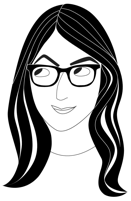
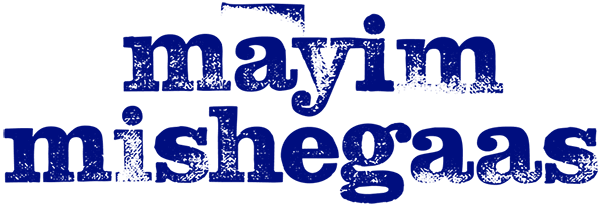
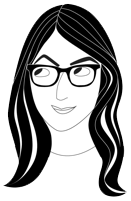 Read More From Mayim
Read More From Mayim
Grok Nation Comment Policy
We welcome thoughtful, grokky comments—keep your negativity and spam to yourself. Please read our Comment Policy before commenting.